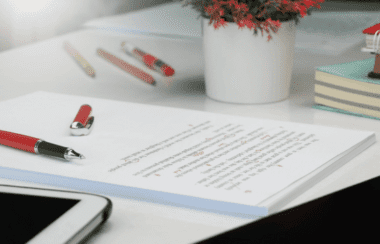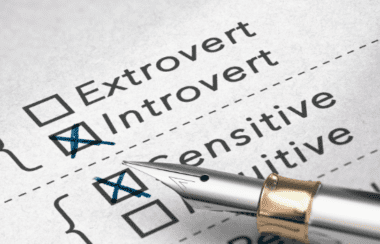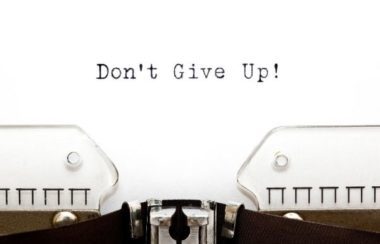The BEST WAYS to Overcome Your WORST DAYS!
By Jena Kroeker

How’s your freelance business going right now? I hope you’re having a good day, but if not, I hope this blog post will help you feel better and move forward. Writing a post like this is a challenge because it’s easy to come off sounding trite and formulaic. Everyone responds differently to bad days, and different things may constitute a bad day for different people.
As a freelancer, my worst days often happen because of technology breakdowns and my own mistakes. One really bad day happened many years ago. It was before I knew about Wi-Fi and mobile technology, so I worked from one computer, and if anything went wrong, I had no backup.
One day I heard about a spyware removal tool that was supposed to be good, so I installed it and ran the scan. Unfortunately, it removed not only the spyware but the software that enabled my Internet connection too!! When I phoned my cable provider, they had never heard of this tool, so they couldn’t help, and to top it off, it was Christmas Eve, and tech support couldn’t send someone over until December 27th. That doesn’t sound so bad, except my client was expecting me to email two completed documents to his company by Christmas Day!
And if you think that’s as bad as it gets, it’s not. My husband had an old computer, so the cable company had recommended I unplug the modem from mine and plug it into his. I plugged it in, opened my email, sent one file, and then a message flashed across the screen – “Browser Hijack!” Oops, there was no security software installed on my husband’s computer. So now I had to worry about whether I had sent a virus to my client AND figure out how to send the other file. I phoned around, but all the Internet cafes were closed.
Long story short, I finally was able to borrow someone’s computer on Christmas Day to send the file, but it was a long process, and I was drained by the end. How did I bounce back from that? Probably not as well as I could have. It took another bad day to show me how to pull myself out of a funk.
Fast-forward a few years, and I was awakened one morning by a call at 6:00 a.m. My client was phoning to let me know she hadn’t received my project. What? I thought it was due the next day, so I checked my schedule. My heart sank as I realized I had read the date wrong. My client graciously gave me until 9:00 a.m. to complete the work and email it over. After freaking out for a moment, I had no choice but to focus and move ahead with the project.
Since I was on a tight deadline, my coping strategies had to be implemented quickly, and I realized that a lot of things I did in those few hours could be adapted to days where the awfulness lasts longer and has a greater impact.
With that in mind, here are some strategies you can use to overcome your worst days in your freelance business:
1. Pause
“Your calm mind is the ultimate weapon against your challenges. So relax.” – Bryant McGill
When I received that call from my client at 6:00 a.m., I felt like the wind had been knocked out of me, and I started to panic. But because I only had three hours to complete a large amount of work, I had to pull myself together quickly so I could get the project done. The first thing I had to do was stop panicking and calm myself.
After a horrible day of work, you might find you’re almost holding your breath. Breathing shallowly can contribute to feelings of anxiety, so in the midst of the challenge and afterwards, it’s good to pause and breathe deeply.
While you’re breathing, try to focus and calm your mind as well. In the midst of a bad day and especially afterwards, I typically have thoughts like, “That’s it – my client is going to fire me,” or “How could I have been so stupid?” Melody J. Wilding has some great advice for overcoming these negative thoughts in her article “5 Ways to Bounce Back From a Horrible Day”:
“It may sound simple, but applying a label to the emotion you’re experiencing can discharge its hold on you and equip you to overcome the negative feelings. When you’re flustered, your mind is cluttered, but research shows that putting your feelings into words can put the brakes on your emotional response and help you process the situation from a more rational, calm perspective. A thought becomes simply a thought; an emotion just an emotion.
“For example, ‘I keep messing up at work, and I’m so frustrated with myself’ becomes ‘I’m having the thought that I’m not doing enough at work, and I’m feeling frustration because of it.’ This mindfulness practice has been shown to improve behavior and problem solving.”
2. Evaluate
“Almost every successful person begins with two beliefs: the future can be better than the present, and I have the power to make it so.” – David Brooks
Once you’re calm, you can reflect on what’s happened so you’re equipped to deal with similar situations in the future. Rather than catastrophizing, it’s now possible to make goals and brainstorm solutions. For example, after reading my client’s schedule wrong, I could strategize like this:
– What caused this issue? I read the schedule wrong.
– How was it solved? I was honest with the client about my mistake, and she made a change to the timeline. I focussed on the task and met the new deadline.
– How does this issue impact my business? It might have lowered my credibility as the client urgently needed the document by the originally scheduled time and date.
– How can I avoid a similar issue in the future? Read schedules carefully and double-check with the client if in doubt.
You may want to speak to a trusted mentor, colleague, friend, or family member who can help you deal with the issue. Depending on what’s happened, you could also do some Internet research for resources on the topic. Sometimes reading about others who have experienced similar challenges in their work day provides inspiration and advice.
Above all, remember to tell yourself that experiencing adversity will make you stronger and wiser. Your success is not measured by a lack of mistakes or challenges, and you can use the worst days in your freelance business to inform your strategies for the future. Think about what you’ve learned, and try to see your worst days as part of your professional training.
3. Unplug
“Almost everything will work again if you unplug it for a few minutes… including you.” – Anne Lamott
After an awful day, it might be tempting to hover around the computer or keep checking email to see if there are more fires to put out. But at a certain point, you need to leave the office so you can give yourself a break. Your brain might have been in problem-solving mode all day, or you may have felt irritated and frustrated, so it’s time to pull the plug and push the reset button on yourself.
If you work in a home office, leave the room and shut the door. If you use a laptop around the house, shut that puppy down and close the lid. Maybe even put it in a case and hide it from yourself momentarily. I used to cover my office equipment with a tea towel to tell myself I wasn’t going to use it again until tomorrow.
In an article titled “5 Ways to Bounce Back From a Bad Day at Work,” Kali Hawlk, writing on behalf of GoGirl Finance, recommends establishing “an end-of-the-workday routine that helps signal the official end of the day.” She says, “That way, when things don’t go so great, your mind still gets to process that work is over – and now it’s time to go home, relax, and do something that makes you happy.”
As freelancers and online business owners, we might already be at home, so we need to do something to separate the bad business day from our personal life. One option is to literally step out of the house, take a short drive or walk, and enter the house again as if we’re commuting home from work.
4. Unwind
“Take time to do what makes your soul happy.” – Author unknown
Now that you’ve unplugged, it’s time to unwind and recharge those batteries so you can face another day. At this point, even if you’ve calmed yourself down, you might still have some frustrations and anxieties simmering inside, so if you need to talk to someone about what happened, please do so. But be sure you’re talking to someone who will help you feel better and not worse. Gwen Moran relates the following advice in her article “6 Simple Ways To Turn A Bad Day Around”:
“On truly bad days, you may need to call in the reinforcements. You probably know what you need to feel better, whether it’s a friend or colleague who will let you vent and just listen or who will help you find solutions. Grab that person and be upfront about what you need. After all, there are few things more annoying than needing a good vent and being peppered with solutions that don’t work for a variety of reasons…”
Next, treat yourself to a good meal, especially if the challenges of the day have kept you from eating enough. I always feel grumpy and pessimistic on an empty stomach, so some nutritious food helps rejuvenate me. Since I’ve been known to overindulge in chocolate when I’m stressed, I appreciate Kali Hawlk’s advice in the abovementioned article.
She emphasizes the importance of engaging in healthy habits and warns us that overindulging in food or alcohol won’t help. She explains, “You need to bring yourself back up – not sedate yourself with activities that keep you sedentary and disengaged.”
So enjoy a healthy meal, maybe a bit of dessert, and end the day with an activity that invigorates you and brings you joy. Remind yourself that there’s more to life than work and that there are people who love you, even if your computer melted down or you lost a key client. Do something that makes you happy, makes you laugh, makes you see the beauty in the world, and gives you hope for tomorrow.
Now we’d love to hear from you! How do you overcome your worst days? Please share your thoughts in the comments below.









































































































